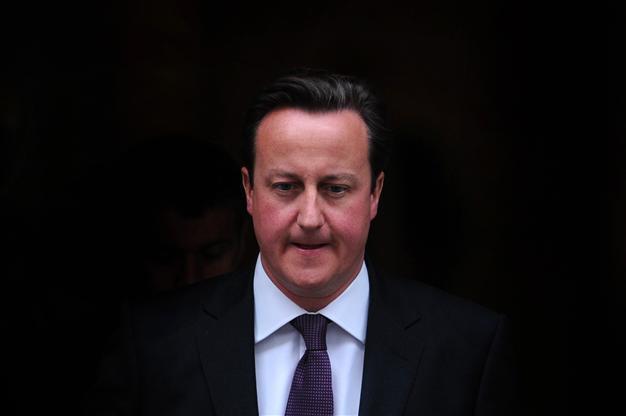Britain back in recession after shrinking 0.2% in Q1
LONDON - Agence France-Presse

Prime Minister David Cameron leaves No10 Downing Street in central London on April 18, 2012 to attend the weekly Prime Minister's Questions (PMQs) at the House of Commons. AFP PHOTO / CARL COURT
Britain's economy unexpectedy sank back into recession in the first quarter of the year, when it contracted by 0.2 percent, official data showed on today.The data confounded market expectations that gross domestic product (GDP) would expand by a slender 0.1 percent in the first quarter from January to March, compared with the final quarter of 2011.
The British economy has now returned to a technical recession, defined as two successive quarters of contraction, after it shrank by 0.3 percent over the previous three months, the Office for National Statistics (ONS) revealed.
The ONS added in a statement that the decline in GDP -- the value of all goods and services produced by the economy -- was driven by weak construction and manufacturing sectors.
Britain also fell back into another downturn as it struggled with painful government spending cutbacks and fallout from the ongoing debt crisis in the neighbouring eurozone, which is a key trading partner.
Highlighting the extent of Britain's debt strains, official data on Tuesday showed public sector net debt as a percentage of GDP -- excluding the cost of bank bailouts -- hit a record high 66 percent in March.
Britain's total debt stands at £1.022 trillion (1.25 trillion euros, $1.65 trillion), the ONS had revealed.
"It's a very tough economic situation," said British finance minister George Osborne in reaction to the recession news on Wednesday.
"It's taking longer than anyone hoped to recover from the biggest debt crisis of our lifetime -- even after the recent fall in unemployment.
"But over many years this country built up massive debts, which we are having to pay off. It's made much harder when so much of the rest of Europe is in recession or heading into it." rfj/wai AFP
















